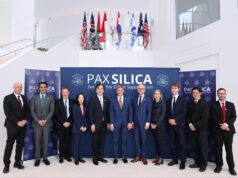SWS: Public expectation for Duterte falls to 35%
PUBLIC EXPECTATION for President Rodrigo R. Duterte in terms of fulfilling most, if not all, his promises fell to 35% in the third quarter — a 17-point decline from 52% in March, results showed in the Social Weather Stations (SWS)Survey conducted Sept. 23-27.
Third quarter’s 35% consisted of 8% indicating Mr. Duterte can fulfill all or nearly all his promises and 27% indicating he can fulfill “most” of his promises (“pangako”), presumably pertaining to his election campaign platform last year against the proliferation of drugs as well as criminality and corruption.
In contrast, more than half of September’s respondents said Mr. Duterte can fulfill “a few” of his promises and 6% said he can fulfill “almost none” or “none.”
Public expectation for Mr. Duterte last year, some three months into his presidency, consisted of 56% saying he could fulfill most to all of his promises (41% most, 15% all or nearly all), while 43% said he could fulfill a few to none of his promises.
DROP ACROSS AREAS
“The 17-point decline in the national proportion of those saying President Duterte can fulfill ‘all or nearly all’ of his promises was due to double-digit declines in all areas,” the SWS survey noted.
Expectation had the steepest decline in Mr. Duterte’s home region of Mindanao, by 33 points to 42%, from 75% in March; followed by the Visayas at 31% (18 points from 49%); Metro Manila at 32% (declining 13 points from 45%); and Balance Luzon at 34% (down 11 points from 45% in March).
Public expectation fell by 20 points to 35% in the rural areas, but had a lower drop by 14 points to 35% in the urban areas. It is in the latter locale that the drug war is believed to be predominant.
Among classes, expectation had the sharpest drop in Class E by 23 points (29% from 51%); followed by Class D, 17 points (36% from 53%), and Class ABC, 7 points (42% from 49%).
Expectation among college graduates fell 28 points to 41%; followed by “non-elementary graduates,” 26 points to 27%; high school graduates, 15 points to 37%; and elementary school graduates, 13 points to 34%.
In terms of age groups, expectation had the sharpest drop of 26 points for both the 45-54 (to 32%) and 55 and above ( 29%); followed by the 16-point drop among the 35-44 (34%); and the 13-point drop among the 18-24 (41%).
Expectation fell 19 points among women, to 34%, and 16 points among men, to 36%.
Satisfaction with Mr. Duterte was an excellent +78 among those who say that he can fulfill all or nearly all of his promises; an excellent +73 among those who expect he can fulfill most of his promises; a good +40 among those who believed that Mr. Duterte can fulfill only few of his promises; and a poor -29 among those who expect him to fulfill none of his promises.
By comparison, public expectation for Mr. Duterte’s predecessor, Benigno S.C. Aquino III, about three months into his presidency, consisted of 44% believing he could fulfill most to all of his promises and more than half, or 54%, believing Mr. Aquino could fulfill a few to none of his promises.
‘FILIPINOS REMAIN SATISFIED’
The non-commissioned survey had face-to-face interviews with 1,500 adults nationwide — 600 respondents in Balance Luzon and 300 each in Metro Manila, Visayas, and Mindanao, with sampling margin errors of ±3% for national percentages, ±4% for Balance Luzon, and ±6% each for the other regions.
Acting Presidential Spokesperson Harry L. Roque, Jr., said in a statement: “We find nothing unusual in the drop of those who expect that he would fulfill his promises as the euphoria of the elections normally wears off after a year in office and people become more realistic on what the government can deliver.”
“What matters is Filipinos remain satisfied when they gave the current administration a “very good” overall performance rating at +58, as reflected in the same survey,” Mr. Roque also noted.
Sought for comment, University of Santo Tomas political professor Edmund S. Tayao said in a phone interview that while expectation and satisfaction are related, “they’re not necessarily absolutely tied to each other.”
“Related ’yung expectation and ’yung satisfaction (Expectation and satisfaction are related to each other) but when the public is satisfied, it doesn’t mean they are satisfied because what was expected happened,” he explained.
“The going down in expectation simply suggests that whatever the President promised, it seems that the public feels that it is not being followed or, in other words, the promises seem to have been scaled down or probably some of it have seem to have been forgotten. So, that’s why the public gave lower ratings as far as expectations are concerned,” Mr. Tayao also said.
He cited a number of examples that would probably drive Filipinos to have lower expectations of Mr. Duterte, including his promise to eradicate drugs in six months, inflation, and Mr. Duterte’s constitutional program of federalism, which “seems to have taken a back seat.”
“In other words, there are some promises which seem to have not been given much push by the President recently, which could possibly explain the drop in the numbers as far as the expectations are concerned,” Mr. Tayao added. — Rosemarie A. Zamora


